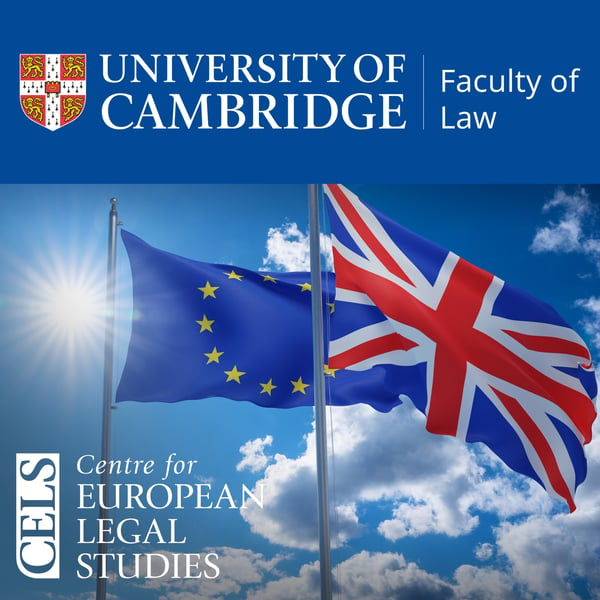'What is EU Relations Law? The Legal Ecosystem of Brexit': Monckton-CELS webinar (audio)
Cambridge Centre for European Legal Studies (CELS) Podcast
Faculty of Law, University of Cambridge
0 • 0 Ratings
🗓️ 7 October 2020
⏱️ 63 minutes
🧾️ Download transcript
Summary
Transcript
Click on a timestamp to play from that location
| 0:00.0 | So welcome at Bredite to the first in this new series of webinars being organized jointly between |
| 0:10.0 | Mountain Chambers and the Faculty of Law at the University of Cambridge. |
| 0:15.0 | I'm Kenneth Armstrong and Professor European Law Cambridge and I'll be chairing today's event. |
| 0:20.0 | Now this initiative has grown from the work |
| 0:22.9 | that Jack Williams has done in launching EU relations law as a field of study, and that includes the |
| 0:30.4 | EU relations law blog that he edits, and where you will find detailed legal analysis of many of the issues we hope to cover |
| 0:39.0 | in these webinars. |
| 0:40.9 | And Jack will be kicking things off in a moment. |
| 0:44.6 | Now, today we are introducing the concept of EU relations law in the webinars. |
| 0:49.9 | And in the webinars that will follow, we will explore issues relating to enforcement, to dispute resolution, to internal and external trade issues, and also some competition aspects as well. |
| 1:03.7 | So today we are joined by two lawyers with huge reputations in the field. |
| 1:08.6 | George Perrits, QC, from Moncton, will explore some key issues around |
| 1:12.8 | about the withdrawal agreement on Northern Ireland Protocol. And my Cambridge colleague, |
| 1:16.9 | Professor Alison Young, will highlight significant aspects of the UK's Brexit legislation. |
| 1:22.9 | And I'll say something at the end about the future relationship. Now we have a Q&A function for these |
| 1:29.3 | webinars where you can put in some questions that we hope to try and get back to towards the |
| 1:34.3 | end of the webinar. But let me first of all hand over to Jack Williams, who's going to frame |
| 1:39.3 | today's discussion. So over to you, Jack. Thank you, Kenneth. The UK's withdrawal from the EU amounts to obviously a |
| 1:47.9 | seismic legal transformation. There's new and a very complex legal ecosystem developing with new sources of law, |
| 1:55.6 | new substantive law itself and new institutions and enforcement bodies. This new ecosystem draws on EU law, |
| 2:03.5 | international law and domestic law. So in my first 10 minutes or so, I'm going to outline |
| 2:09.4 | the framework of this new body of law that we call EU relations law concerning the UK's |
... |
Please login to see the full transcript.
Disclaimer: The podcast and artwork embedded on this page are from Faculty of Law, University of Cambridge, and are the property of its owner and not affiliated with or endorsed by Tapesearch.
Generated transcripts are the property of Faculty of Law, University of Cambridge and are distributed freely under the Fair Use doctrine. Transcripts generated by Tapesearch are not guaranteed to be accurate.
Copyright © Tapesearch 2025.

